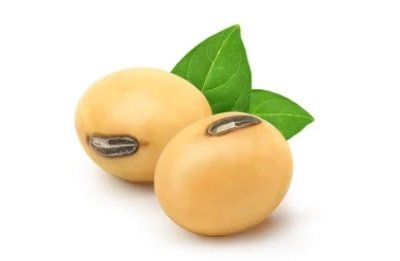Sanjay Borkar, Co-Founder and CEO, FarmERP gives insight on how digital mandis can revolutionise a sector in dire need of advancement
Agriculture forms the backbone of any society – it is upon the benefits we reap from its harvests, that we can move toward secondary pursuits. Often devoid of appreciation, acknowledgement, and real monetary benefits, our farmers toil over the land in much the same way they did years ago for lack of better options.
The current Indian infrastructure revolves around producers travelling to their nearest pulse point, i.e., their local mandis which fall under the governance of the APMC. To the detriment of farmers, their journey begins with a long commute lugging along perishable items, resulting in certain wastage of the crop. Upon their arrival at the local marketplace, farmers must initiate their primary sale, offering their produce for sorting, grading, and packaging; armed only with reluctant good faith in the agents upon whom they depend so heavily on.
The most inefficient system consists of an overly complicated network of local agents, retailers and wholesalers who take part in the process of settling upon prices and making offers.
The farmer, having been left out of the opaque mechanisms of the secondary sale, and forced to trust the words of the middleman, is pressured into selling his produce at a lower price. The larger injustice, however, is that he sees barely any of the payment after the agent has carved off a fat commission, and equally due to unreliable and delayed cash payments.
Mandis in this manner, create little monopolies with agents stockpiling inventory to hold control over prices, aware that primary producers have nowhere else to turn, nor any point of reference for a fair price. These markets function in quite an autonomous way, devoid of links to others across the country, which not only allows carte blanche for fluctuating prices but also staggers the movement of goods.
With its fallacies having been unveiled in light of the COVID-19 pandemic, there is an increased clamour for end-to-end streamlining of the industry. All parties with vested interests rely upon an efficient supply chain and require sustained yields and high-quality processes. The need for an equitable pan-India infrastructure has become glaringly obvious.
Technological innovations, as always, seem to be the best solution to modern-day problems. Having already advocated for AI aided climate-resistant farming, agritech firms are now making a push for digital mandis, which they hope can revolutionise a sector in dire need of advancement.
Digital mandis propose a comparatively simpler national, warehouse-based trading module, which puts the power back in the farmer’s hands. A local producer can upload his inventory to a digital portal, which can be accessed by interested buyers all over the country. This B2C format eliminates farmer exploitation by facilitating real-time displays of market prices and offers seamless and secured online payments, thereby maintaining his bargaining power.
This new ‘e-mandi’ system not only alleviates the pressure on farmers but greatly increases their productivity and yield. By eliminating long-drawn travels and auctions, food wastage is greatly reduced, and this has a positive impact on pricing, allowing for greater profits. A digital solution simplifies the sale process, and empowers farmers at the grass-root level, paving the way for future agricultural frameworks to be built towards the overall uberisation of agriculture. Additionally, it highlights the factor of ‘traceability’ which is essential in today’s COVID-struck world.
Along with bringing much-needed transparency to the sector, digital mandis offer the exciting prospect of quickening the farm-to-fork journey while promoting fair trade and price discovery based solely upon real-time supply and demand and produce quality.
Of course, e-mandis come with their own set of challenges, for instance, mobilising a population of professionals who may not be tech-savvy. Education in regional languages at the most basic level is the first step toward aggregating farmers on such a large platform, a basic need for the bolstering of their self-sufficiency. Additionally, the kinks of logistical factors of storage and transportation while maintaining sustainability and proper social distancing, need to be worked out.
While still being rolled out, the digital mandi concept fits perfectly into the government’s Digital India movement and is a step toward the future of agriculture where it is inextricably linked to technology for its betterment and growth in the face of climate change and other challenges.
Sanjay Borkar, Co-Founder and CEO, FarmERP gives














